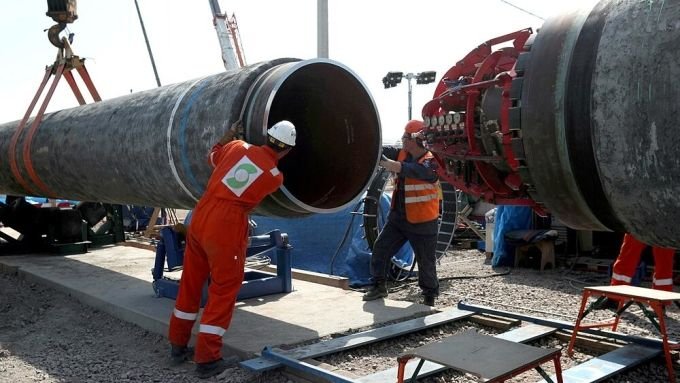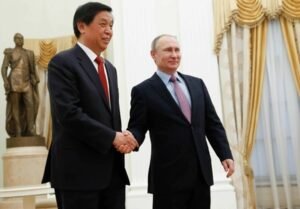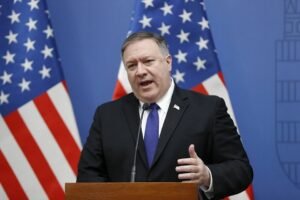
The EU is divided over the Russian oil embargo plan 3
European Union (EU) officials on May 3 presented a draft plan to member countries for a new sanctions package targeting Russia for its military campaign in Ukraine, including a crude oil embargo.
Some EU officials and European diplomats in Brussels say there are divisions over the plan.
However, Slovakia, a country like Hungary that is almost 100% dependent on Russian crude oil through the Druzb pipeline, said it would take several years.
Workers at the pipeline installation site in Kingisepp, Leningrad region, Russia last year for the Nord Stream 2 project with Germany.
Anonymous officials involved in the tense legal and diplomatic negotiations said Bulgaria and the Czech Republic may also seek to opt out of the sanctions package.
A European diplomat warned that granting exemptions to one or two countries heavily dependent on Russian oil could have a domino effect, causing other countries to also want exemptions and thus weakening the embargo.
Ambassadors from 27 EU countries will meet today to briefly review the plan.
If approved, this will be the EU’s sixth sanctions package targeting Russia since Moscow launched a military campaign in Ukraine at the end of February. Ukraine believes that Russia’s energy exports to Europe have largely remained low.
According to Josef Borrell, EU high commissioner for foreign and security policy, the new sanctions package will also cause more Russian banks to be pushed out of the SWIFT international payment network.
Europe’s effort to eliminate Russian oil is expected to be easier than reducing dependence on Russian natural gas.
The EU imports 3-3.5 million barrels of Russian oil per day, with payments of about $400 million per day.
US Treasury Secretary Janet Yellen assessed that Europe’s Russian oil embargo would push up international oil prices, damage the fragile global economy and `have very little impact` on Russia.

Pipelines transport Russian gas to Europe.







